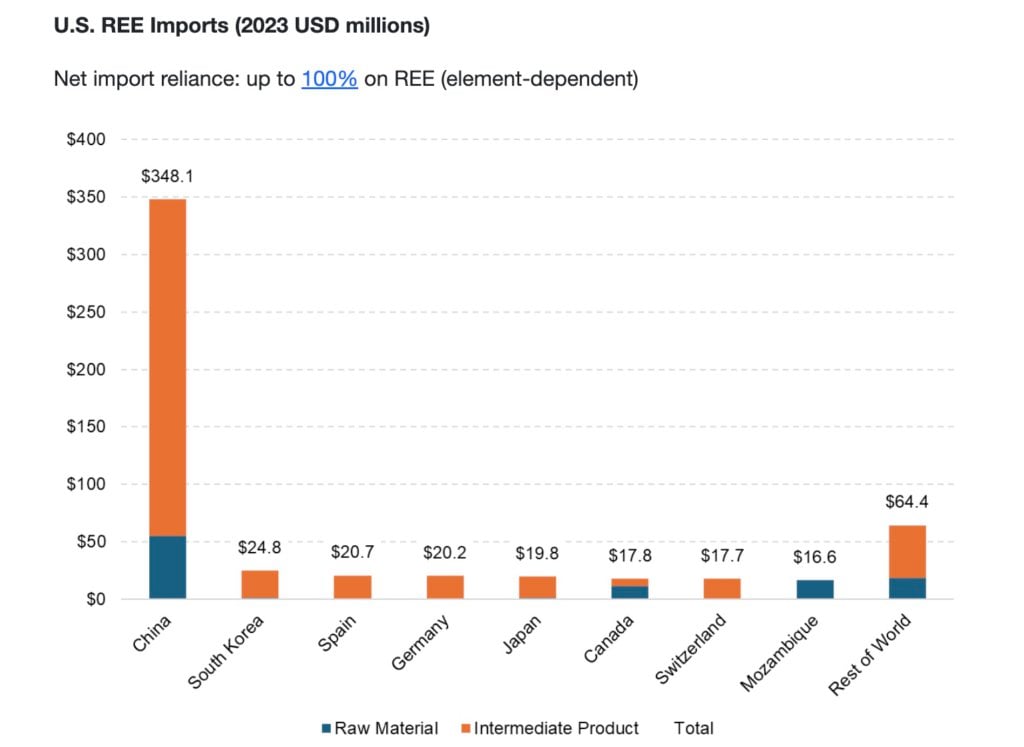After weeks of tense emotions, U.S. President Trump and Chinese President Xi Jinping spoke earlier this week, bringing a potential easing opportunity to the strained U.S.-China relations. Trump subsequently announced that representatives from both countries will launch a new round of trade consultations in London on June 9.
U.S. Treasury Secretary Scott Bessent, Commerce Secretary Howard Lutnick, and Trade Representative Jamieson Greer will meet with Chinese officials. On the Chinese side, Vice Premier He Lifeng will also participate in the relevant talks. The outside world expects this meeting to find an exit for ongoing trade friction, but if it breaks down, it may bring greater volatility (The talks between the two sides are expected to begin late on the 9th, Taiwan time)
London Talks Focal Points
The core issues of this London talks will focus on further negotiations of bilateral tariffs and China's export controls on rare earth minerals. These two issues are crucial to the economic stability of both sides. Trump was optimistic about this, but there are still many variables:
This meeting should proceed very smoothly.
Previously, the two sides reached a 90-day agreement in Geneva in May, agreeing to gradually remove some retaliatory tariffs and significantly reduce tariffs to be implemented from April 2, 2025. The market responded positively to this preliminary agreement. For example, the S&P 500 index fell nearly 18% in early April due to tariff announcements but has since significantly recovered, only about 2% away from its historical high in mid-February.
However, before the ink was dry, the U.S. has recently taken a series of tough measures against China:
- The U.S. plans to restrict software services related to chip design sales to Chinese companies
- U.S. Secretary of State Rubio announced on X that he will revoke visas for Chinese students associated with the CCP
- The U.S. Department of Commerce has suspended some export licenses allowing the supply of engine parts and technology to China Commercial Aircraft (COMAC)
Rare Earth Dispute: Stumbling Block of Trade Truce
According to foreign media analysis, the main reason for the U.S. to intensify pressure again is that the U.S. clearly demanded at the Geneva conference that China immediately resume rare earth exports to the U.S., but Beijing continues to delay approving related export licenses. This has substantially impacted some U.S. automotive manufacturers, potentially forcing them to reduce or halt production.
We know that rare earths are indispensable to modern industry, widely used in electric motor magnets, wind turbines, defense systems, and high-tech equipment. Data shows that in 2023, about 65% of rare earths in the U.S. were imported from China, while China currently controls about 60% of global rare earth production and over 85% of processing capacity, giving it significant negotiation leverage in international geopolitics.

Deep Divisions Persist, Negotiations Face Challenges
Although the London talks mark an attempt by the U.S. and China to ease trade tensions, deep structural differences still exist. Investors are worried that Trump's fluctuating tariff policies might impact market stability, while China faces U.S. export restrictions in high-tech fields such as chip design software and key nuclear power plant components.
This London talks is an important step for both sides to repair trade relations and attempt to establish a stable communication mechanism. The results will not only affect the economies of both countries but will also have a profound impact on global economic stability and development direction.







